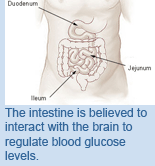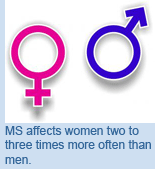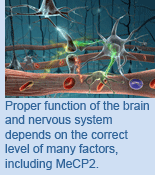
May 2012
Welcome to Net Results EXPRESS
Net Results EXPRESS (NRx) is an award-winning, monthly e-newsletter highlighting medical and scientific breakthroughs, major grants and honours awarded, and other research-related events at UHN. Through NRx you can read about ongoing research at our five research institutes, the Ontario Cancer Institute (OCI), the Toronto General Research Institute (TGRI), the Toronto Western Research Institute (TWRI), the Toronto Rehabilitation Institute (TRI) and the Techna Institute for the Advancement of Technology for Health (TECHNA). We hope you will find this newsletter informative and helpful. If you have feedback or questions, please contact www@uhnresearch.ca. Christopher J. Paige, PhD, FCAHS |
Kidney Failure: Fish Oils May Provide Benefits for Hemodialysis Patients
Without proper kidney function these patients require hemodialysis, a procedure in which a machine is used to remove waste products from the patient’s blood that would otherwise accumulate. In order to receive hemodialysis, there must be a connection between the dialysis machine and the patient’s circulatory system, called a 'vascular access'. One option for enabling vascular access is by using arteriovenous grafts (AV grafts), where a synthetic tube is surgically grafted between an artery and a vein. This option is associated with high failure rates within one year due to obstruction from vessel narrowing or blood clot formation. Thus, successive procedures are often required to keep the AV graft open and working. The research study enrolled 201 chronic kidney disease patients that received AV grafts. While daily consumption of fish oil showed marginal improvement in whether or not the AV graft had at least one clot or needed a procedure to help keep it open within a one year period, other benefits were observed. The time before a clot occurred and the frequency of graft clotting were reduced by half. Patients also required fewer interventions to keep the AV graft open. Furthermore, patients that consumed fish oil showed improved cardiovascular health and lowered blood pressure. These results suggest that there are clinically important benefits for the AV graft and other secondary benefits for patients undergoing hemodialysis who consume fish oil. Effect of fish oil supplementation on graft patency and cardiovascular events among patients with new synthetic arteriovenous hemodialysis grafts: a randomized controlled trial. Lok CE, Moist L, Hemmelgarn BR, Tonelli M, Vazquez MA, Dorval M, Oliver M, Donnelly S, Allon M, Stanley K. The Journal of the American Medical Association. 2012 May 2. [Pubmed abstract] This work was supported by the Physician’s Services Incorporated Foundation and the Canadian Institutes of Health Research. |
Diabetes: Glucose Regulation by the Intestine
Dr. Lam’s team infused glucose into an animal model and identified that the jejunum—the middle portion of the intestine—sensed nutrient intake and helped to inhibit glucose production in normal rats. Following this, a duodenal-jejunal bypass (DJB) surgery was performed in animals with uncontrolled diabetes, creating a digestive pathway directly from the stomach to the jejunum. This enhanced nutrient flow into the remaining intestine and lowered glucose concentration to normal levels within two days. These changes were independent of insulin levels, food intake and body weight and were reflected in a similar experiment with insulin-deficient type 1 diabetic animals. The identification of a specific part of the intestine that mediates a rapid reduction in blood glucose levels represents great potential for the use of DJB surgery to combat both type 1 and type 2 diabetes. Dr. Lam explains, "This research identifies sensing mechanisms in the jejunum as potential therapeutic targets to treat this devastating disease in the future." Jejunal nutrient sensing is required for duodenal-jejunal bypass surgery to rapidly lower glucose concentrations in uncontrolled diabetes. Breen DM, Rasmussen BA, Kokorovic A, Wang R, Cheung GWC, Lam TK. Nature Medicine. 2012 May 20. [Pubmed abstract] This work was supported by the Canadian Institutes of Health Research. Dr. Lam holds the John Kitson McIvor Endowed Chair in Diabetes Research and is a Tier II Canada Research Chair in Obesity Research. |
Autoimmunity: Gender Differences in the Immune System
Interferon γ (INFγ) and IL-17A are proinflammatory factors critical to the function of the immune system. However, they also play a role in autoimmune disease, with INFγ strongly associated with MS and IL-17A with other diseases. CD4+ T cells from females were found to produce high levels of INFγ, while male CD4+ T cells instead produced IL-17A at higher levels than female cells. This gender difference was found to be dependent on androgen status—the male sex hormone—and expression of the proteins peroxisome proliferator activated receptor (PPAR) α and PPARγ, a family of proteins that can control the expression of genes. PPARα levels were increased by androgen, while PPARγ levels were decreased by androgen. In a series of genetic experiments, Dr. Dunn determined that PPARα decreases INFγ levels, while PPARγ decreases IL-17A levels, thus shedding light on the gender differences in these proinflammatory factors. Commenting on these findings, Dr. Dunn says, "Sex differences in proinflammatory factor production raise the prospect that women and men with MS should be treated differently." Peroxisome proliferator-activated receptor (PPAR)α and -γ regulate IFNγ and IL-17A production by human T cells in a sex-specific way. Zhang MA, Rego D, Moshkova M, Kebir H, Chruscinski A, Nguyen HK, Akkermann R, Stanczyk FZ, Prat A, Steinman L, Dunn SE. Proceedings of the National Academy of Sciences. 2012 May 28. [Abstract] This work was supported by the Canadian Institutes of Health Research, the Ministry of Economic Development and Innovation and the Multiple Sclerosis Society of Canada. |
Hypertension: Managing Blood Pressure with Your Smartphone
Participants were provided with a home blood pressure telemonitoring system that provides self-care support messages on their smartphones immediately after each blood pressure monitor reading. These messages provide the patient with written progress reports and coaching messages and can alert patients in case blood pressure is too high. After one year, 51% of ‘self-care support’ diabetic patients had achieved the recommended blood pressure target of <130/80 mmHg, while only 31% of diabetic patients without the telemonitoring system reached this target in the same period. "Improvements were obtained without a significant change in antihypertensive medications or visits to physicians," comments Dr Cafazzo. "These findings, and the popularity of smartphones, highlight the effectiveness of this system in lowering blood pressure and managing hypertension in diabetic patients." Effect of home blood pressure telemonitoring with self-care support on uncontrolled systolic hypertension in diabetics. Logan AG, Irvine MJ, McIsaac WJ, Tisler A, Rossos PG, Easty A, Feig DS, Cafazzo JA. Hypertension. 2012 May 21. [Pubmed abstract] This work was supported by The Heart and Stroke Foundation of Ontario. |
Sleep Apnea: Daytime Alertness May Reveal Heart Health
Dr. Bradley’s team found that the heightened alertness experienced in these patients not related to the severity of sleep apnea or the degree of sleep disturbances experienced. Rather, it was related to higher levels of sympathetic nervous system activity, which is linked to alertness and the ‘fight or flight’ response—a physiological response to stressful situations. Both heart failure and sleep apnea stimulate sympathetic nervous system activity, and the combination of the two appears to heighten alertness despite sleep disruption. While further studies are required to pinpoint the exact neural pathways involved, these findings provide insight into why patients with heart failure seldom undergo sleep studies to diagnose sleep apnea because they are not tired due to heightened sympathetic nerve activity. Thus a different strategy would have to be implemented to identify sleep apnea in patients with heart failure than is used for the general population. Inverse relationship of subjective daytime sleepiness to sympathetic activity in heart failure patients with obstructive sleep apnea. Montemurro LT, Floras JS, Millar PJ, Kasai T, Gabriel JM, Spaak J, Coelho FM, Bradley TD. Chest. 2012 April 26. [Pubmed abstract] This work was supported by the Canadian Institutes of Health Research, the Heart and Stroke Foundation of Canada, the Canada Foundation for Innovation, the Ontario Innovation Trust and the Ministry of Research and Innovation. |
Neurology: Exploring the Regulation of Brain Function
A recent study by TWRI Senior Scientist Dr. James Eubanks and TWRI Scientist Dr. Liang Zhang examined mice with decreased levels of MeCP2 within their home environment and found that they displayed a number of physiological differences. Specifically, these mice had decreased body temperature, indicative of impaired autonomic nervous system function—the control system for functions such as breathing, heart rate and body temperature regulation. Additionally, decreased MeCP2 levels altered the pattern and cycling of delta brain waves, which occur during the deepest level of sleep, a restorative period for the brain. "These results suggest that MeCP2 plays an important role in the regulation and patterning of normal daily brain function and activity," explains Dr. Eubanks. "Understanding how disruptions of MeCP2 levels affect normal processes provides greater insight into the basis of associated neurological disorders." Daily rhythmic behaviors and thermoregulatory patterns are disrupted in adult female MeCP2-deficient mice. Wither RG, Colic S, Wu C, Bardakjian BL, Zhang L, Eubanks JH. PLoS One. 2012 April 16. [Pubmed abstract] This work was supported by the Canadian Institutes of Health Research. |
 |
![]()
 TRI has launched a new series of research videos. Topics include state-of-the-art research labs, a concussion study, a new sleep apnea detection device and a stimulation therapy to reawaken paralyzed limbs. The four videos are part of a special digital annual report called A World Inside: Research at Toronto Rehab.
TRI has launched a new series of research videos. Topics include state-of-the-art research labs, a concussion study, a new sleep apnea detection device and a stimulation therapy to reawaken paralyzed limbs. The four videos are part of a special digital annual report called A World Inside: Research at Toronto Rehab.In addition to the videos, there are articles that describe how TRI is revolutionizing rehabilitation research with new labs—like a giant motion simulator that can be used to recreate everyday environmental challenges—and groundbreaking findings. A three-page spread highlights some of the discoveries that are helping to prevent injury and maximize life for people living with the effects of disability, illness and aging.
View these videos and the report online or obtain the full DVD package from Aoife Conway at Aoife.Conway@uhn.ca.
 UHN congratulates Dr. Gary Rodin, OCI Senior Scientist and Head of the Department of Psychosocial Oncology and Palliative Care at PMH, for receiving the Canadian Association of Psychosocial Oncology (CAPO) Life Time Achievement Award. Dr. Rodin was recognized with this honour for his exceptional and enduring career contributions to Psychosocial Oncology.
UHN congratulates Dr. Gary Rodin, OCI Senior Scientist and Head of the Department of Psychosocial Oncology and Palliative Care at PMH, for receiving the Canadian Association of Psychosocial Oncology (CAPO) Life Time Achievement Award. Dr. Rodin was recognized with this honour for his exceptional and enduring career contributions to Psychosocial Oncology.Dr. Rodin's achievements include pioneering the world-renowned fully integrated program of Psychosocial Oncology and Palliative Care. Dr. Rodin leads a research team focused on the investigation and treatment of the psychological consequences of metastatic and advanced disease.
Founded in honour of Christopher Reeve, the award was presented to Drs. Tator and Fehlings at a symposium held at the University of California at Irvine on May 11. This is the first time the Medal has been presented to a Toronto-area team.
In addition to his significant contributions to cancer research, Dr Guha was a leader in encouraging South Asians to get tested to see if they are matches for bone marrow transplants. He was also involved in charitable work in India, building the Institute of Neurosciences Kolkata.
Feedback
Net Results EXPRESS is brought to you by UHN Research Communications. We hope you have enjoyed receiving this message. If you have any feedback, please email www@uhnresearch.ca.
To access archived issues of Net Results EXPRESS, visit uhnresearch.ca/news/netresultsexpress
Some images adapted from the image archives of stock.xchng.ca, Wikipedia and Dr. Joe Cafazzo. Diets that contain high levels of omega-3 fatty acids, which are found in fish oils, are associated with improved cardiovascular health. TGRI Clinician Scientist Dr.
Diets that contain high levels of omega-3 fatty acids, which are found in fish oils, are associated with improved cardiovascular health. TGRI Clinician Scientist Dr.  Diabetes is a disease that affects millions of Canadians and is marked by high levels of sugar, or glucose, in the blood. One strategy in the fight against this disease is the use of gastrointestinal bypass surgery, with the belief that enhanced nutrient flow in the intestine will alter hormone levels responsible for communication between the gut and the brain and augment greater control over glucose production. However, the precise mechanisms that underlie the glucose-lowering effect and its clinical relevance remain unknown. To shed light on this subject, TGRI Scientist Dr.
Diabetes is a disease that affects millions of Canadians and is marked by high levels of sugar, or glucose, in the blood. One strategy in the fight against this disease is the use of gastrointestinal bypass surgery, with the belief that enhanced nutrient flow in the intestine will alter hormone levels responsible for communication between the gut and the brain and augment greater control over glucose production. However, the precise mechanisms that underlie the glucose-lowering effect and its clinical relevance remain unknown. To shed light on this subject, TGRI Scientist Dr.  For reasons that remain unclear, women develop certain autoimmune diseases, including multiple sclerosis (MS), more often than men. TGRI Scientist Dr.
For reasons that remain unclear, women develop certain autoimmune diseases, including multiple sclerosis (MS), more often than men. TGRI Scientist Dr.  Lowering blood pressure in hypertensive patients reduces the risk of cardiovascular disease. Unfortunately, blood pressure is poorly controlled in the majority of hypertensive diabetic patients. A study, by clinical lead Dr. Joseph Cafazzo of the Design and Engineering Coreat TECHNA and Clinician Scientist Dr. Alexander Logan of the Samuel Lunenfeld Research Institute, investigated the effectiveness of a home blood pressure telemonitoring system that remotely transmits data to health care providers from hypertensive diabetic patients.
Lowering blood pressure in hypertensive patients reduces the risk of cardiovascular disease. Unfortunately, blood pressure is poorly controlled in the majority of hypertensive diabetic patients. A study, by clinical lead Dr. Joseph Cafazzo of the Design and Engineering Coreat TECHNA and Clinician Scientist Dr. Alexander Logan of the Samuel Lunenfeld Research Institute, investigated the effectiveness of a home blood pressure telemonitoring system that remotely transmits data to health care providers from hypertensive diabetic patients. Patients with sleep apnea often complain of excessive daytime drowsiness due to night time disruption from apnea, and this usually prompts referral to a sleep clinic. Unexpectedly, sleep apnea patients who also suffer from heart failure have reduced daytime drowsiness and feel more alert throughout the day. A recent study by TRI Senior Scientist Dr.
Patients with sleep apnea often complain of excessive daytime drowsiness due to night time disruption from apnea, and this usually prompts referral to a sleep clinic. Unexpectedly, sleep apnea patients who also suffer from heart failure have reduced daytime drowsiness and feel more alert throughout the day. A recent study by TRI Senior Scientist Dr.  A number of neurological disorders, including Rett Syndrome, X-linked mental retardation syndrome and some forms of autism, have been associated with mutations in a gene called Methyl-CpG-binding protein 2 (MeCP2). However, it is unclear exactly how decreased levels of MeCP2 alter the normal functioning of the brain.
A number of neurological disorders, including Rett Syndrome, X-linked mental retardation syndrome and some forms of autism, have been associated with mutations in a gene called Methyl-CpG-binding protein 2 (MeCP2). However, it is unclear exactly how decreased levels of MeCP2 alter the normal functioning of the brain.